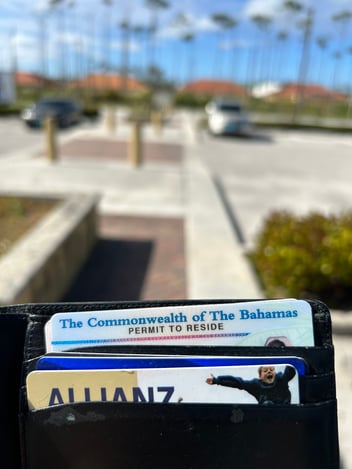VAT in The Bahamas is a value added tax like anywhere else in the world. The broad based consumption tax is applied to almost all goods and services that are imported, bought and sold for use in The Bahamas. Two rates of VAT are applied which is the standard rate of 10% and a zero rate of 0%.
Goods exported to customers abroad are classified as exempt from VAT or zero rated.
Certain goods and services, such as basic groceries, healthcare, and education, are exempt from VAT. However, many other items, including luxury goods and services, are subject to the tax.
History of VAT in The Bahamas
The Bahamas implemented VAT in 2015, partly as a way to diversify the country’s revenue base and reduce reliance on import duties.
It was initially set at a rate of 12%. Back in 2022, The Bahamas published the Value Added Tax (Amendment)(No. 2) Act in the Official Gazette on 13 December 2021. One of the key amends of the act was a reduction in the standard VAT rate from 12% to 10% with effect from 1 January 2022.
Cons of VAT
VAT has been a controversial issue in the Bahamas since its implementation. Some have argued that the tax places a burden on low-income individuals who are already struggling to make ends meet. Others are concerned that the tax may discourage foreign investment and dampen economic growth.
Pros of VAT
However, there are also those who support VAT as a necessary measure to boost government revenue and provide funds for social programs.
Overall, the implementation of VAT in the Bahamas has been a significant step towards modernizing the country’s tax system and diversifying its revenue base. However, as with any major policy change, there are both advantages and disadvantages to consider. As the country continues to develop, it will be important to closely monitor the impact of VAT and make adjustments as necessary to ensure that it benefits all members of society.
Other taxes in The Bahamas
Bahamas has a relatively simple tax system that is easy to understand and navigate. As you may know, there are no income tax, no corporate tax, no capital gain tax and no inheritance tax.
Beside value-added tax (VAT) there are real estate tax, stamp duty, and customs duties.
Real property tax is a tax on the value of real estate owned in The Bahamas. The tax rate ranges from 0.25% to 2% of the property’s assessed value. Our Villas on Steininger Island is exempt from property tax!
Stamp duty applies to financial services.
Custom duties applies to imported goods. Most good imported in the Freeport Free Trade Zone and Steininger Island are exempt form import duties. (Freeport is a 230-square mile free trade zone on Grand Bahama Island, established in 1955. The Grand Bahama Port Authority Limited operates the free trade zone.)




